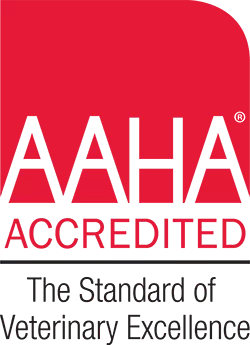Understanding the Importance of Cat Dental Care
I'd like to talk to you, cat owners, today about dental care for your cats. As we know, even though we here at veterinary hospitals like Hampton Veterinary Hospital treat dogs and cats, and they are very similar species in many ways, there are also significant differences between them, as we both realize by living with and caring for them. One of these differences is certainly dental disease.
How is dental disease in cats different from dogs?
While dogs are more similar to people in terms of developing periodontal disease, with tartar developing on teeth, under gum lines, loosening teeth, and causing problems and bacterial infections, this does happen in cats but typically at a much slower pace. It's not as much of a concern with most younger cats. However, every cat is different.
What are resorptive lesions?
The main issue we see in cats, and typically in most situations happens at quite a young age, even less than a year in older kittens, but certainly between 1 to 4 years of age, is a dental issue called resorptive lesions, also known as feline resorptive lesions or feline odontoclastic resorption lesions (FORLs).
This is not a new medical issue. Veterinarians have known about resorptive lesions for decades. Unfortunately, no one's been able to figure out the cause. It has not been linked to a viral infection or infectious cause, nor to any nutritional deficiencies. More likely than not, we assume it's genetic. Roughly about a third of cats develop resorptive lesions.
How can resorptive lesions be identified in cats?
Your veterinarian, through a regular thorough oral examination during regular wellness exams or any typical examination, should be able to identify the small changes that indicate a much bigger issue going on underneath the gum line in cats with resorptive lesions.
Typically, it starts with a bit of redness in the gums around certain teeth. Sometimes we can actually see these resorptive lesions. They are holes that erode into the tooth itself, either on the crown, the part you can see, or on the root, which we can't see and can only detect by taking X-rays of the roots under anesthesia during a dental procedure.
What are the treatment options for resorptive lesions for cats?
When appropriate, your veterinarian will recommend a dental cleaning and evaluation to determine whether your cat has underlying resorptive lesions. These painful lesions are tolerated much better by cats than by us. They hide their pain and deal with it better, but they still feel pain nonetheless. We believe they shouldn't have to endure pain.
We recommend dental procedures to extract teeth with painful resorptive lesions before they become more painful over time. If not addressed, they will eventually fracture out of the cat's mouth, which we want to prevent.
Can resorptive lesions be prevented in cats?
While we don't have a way to prevent resorptive lesions from occurring, we have techniques to effectively and safely remove and extract painful teeth or resorptive lesions. We perform these procedures quite regularly here at Hampton Veterinary Hospital.
Cats thrive after the removal of certain teeth, or sometimes all their teeth, and people often wonder how they eat. They eat well, especially soft canned food or softened dry food, and they feel better and happier. I hear this time and time again.
Why are tooth extractions recommended?
When your veterinarian recommends that your cat may need or definitely needs tooth extractions, understand that we are doing so to help your cat feel much better and live a happier life. While young cats might not develop as many medical issues as older cats, they do develop dental issues. That's one of the major concerns in younger cats that we strongly recommend addressing when appropriate because we want your cats to be happy and healthy, just like you do.
If you’re ready to schedule an exam or would like to learn more about our veterinary services, we’d love to hear from you. Call (603) 926-7978 or email [email protected]. We look forward to caring for your pet.

